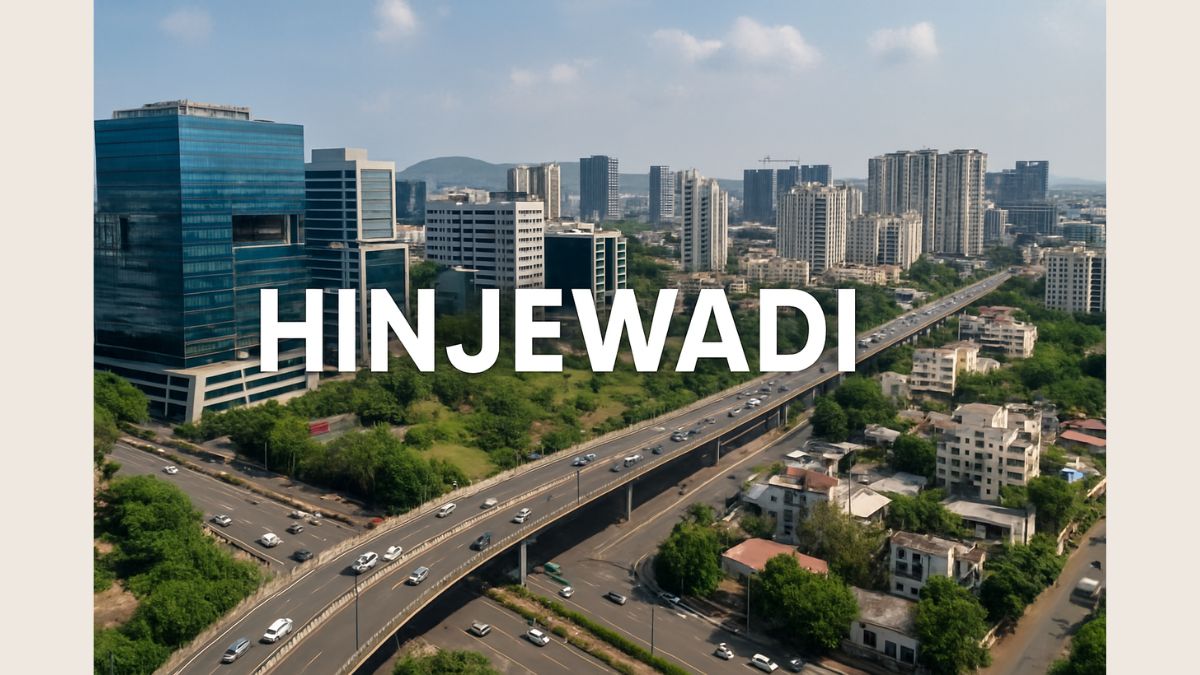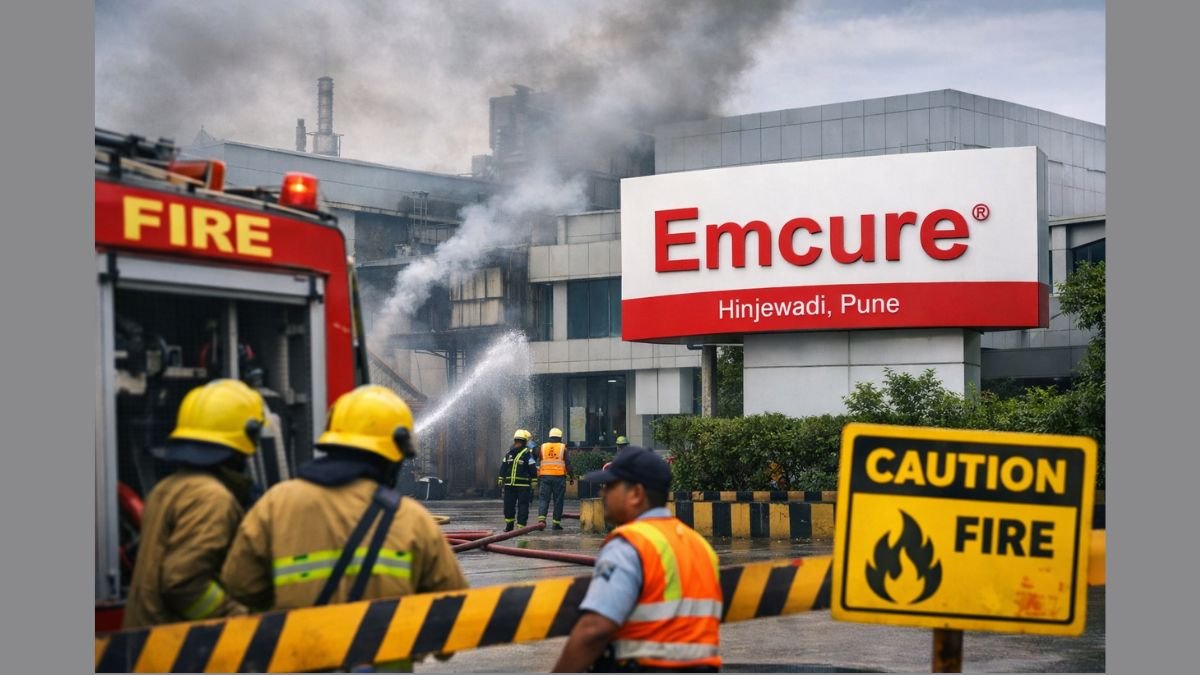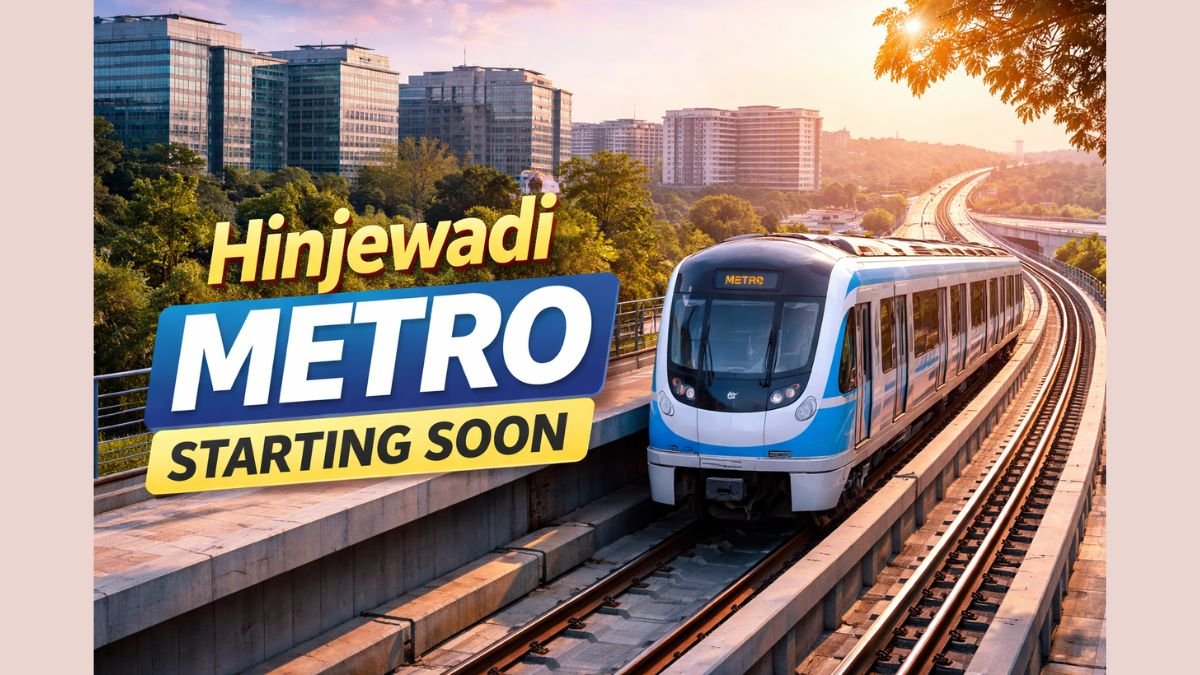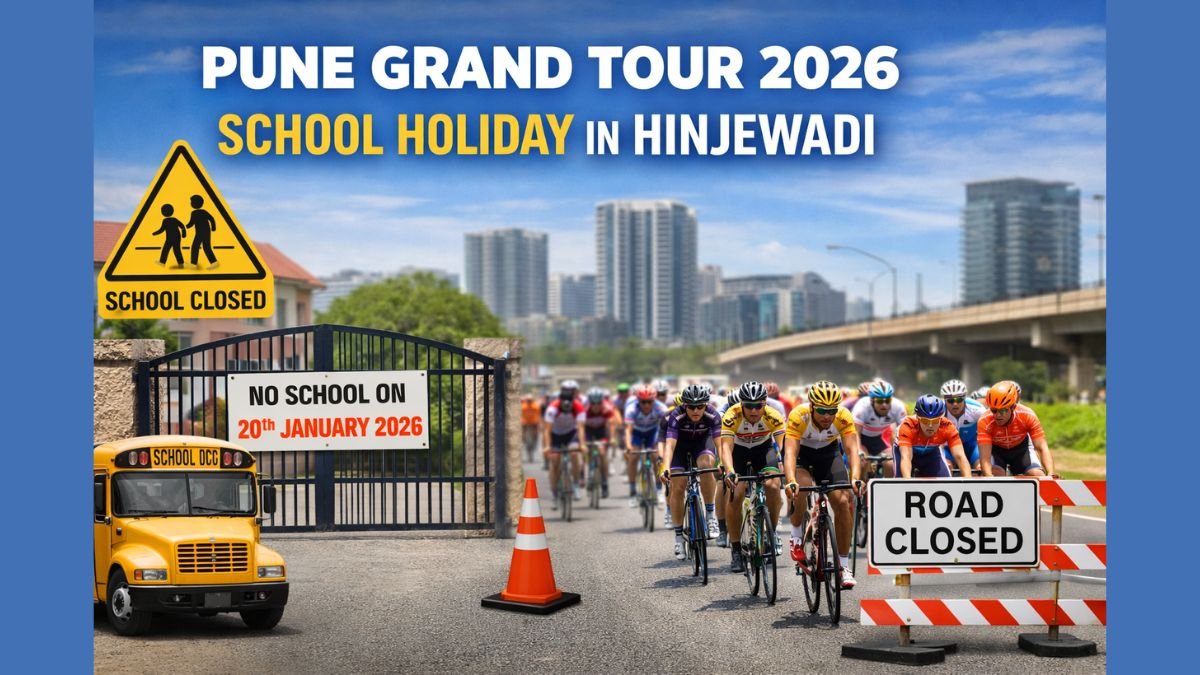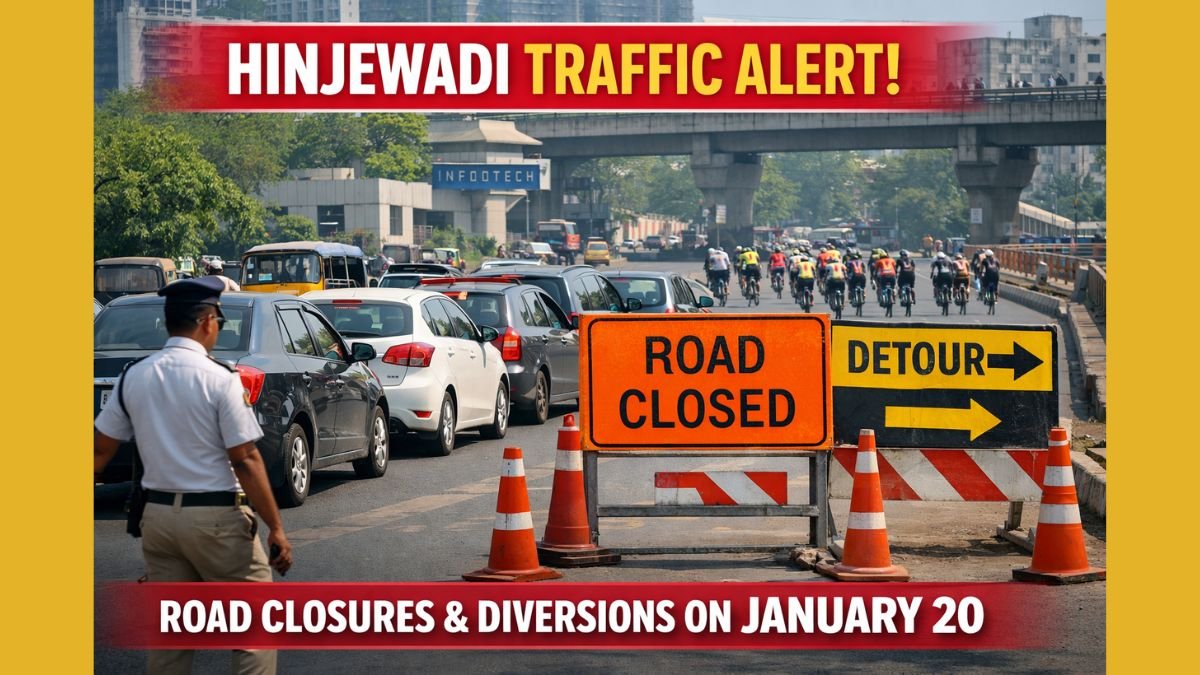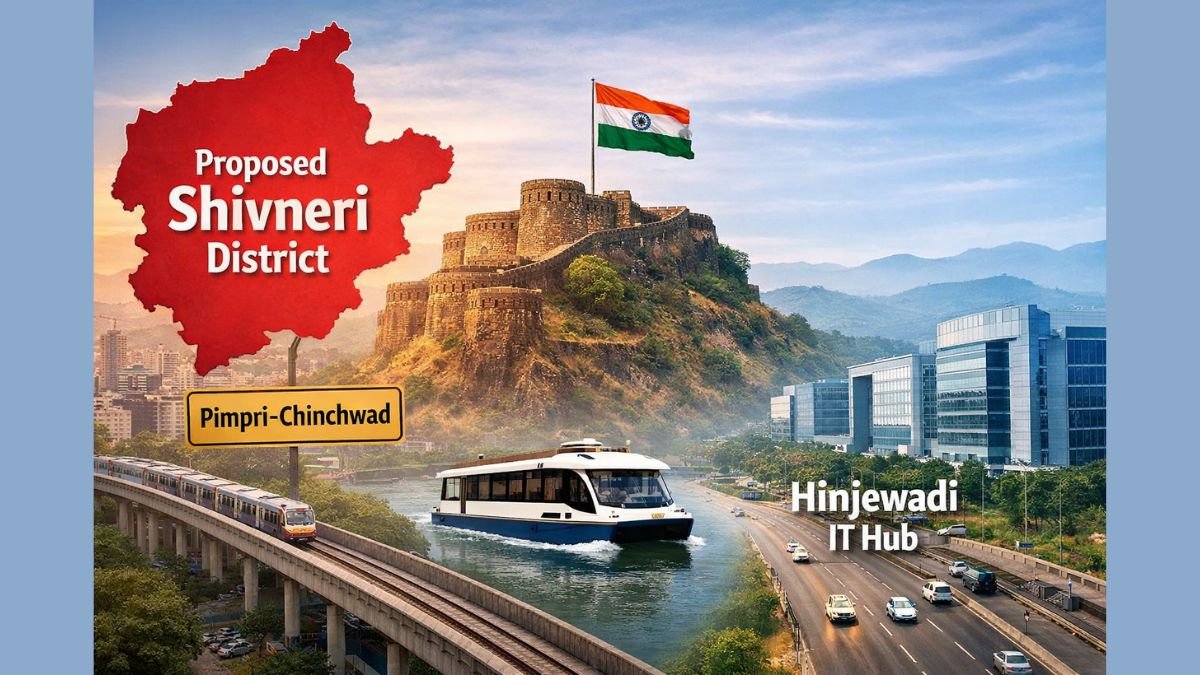- Hinjewadi: Roads, Safety Concerns, and What Residents Demand
- Roads in Hinjewadi: A Daily Struggle
- Why Accidents Keep Happening
- A Look at Accident-Prone Zones in Hinjewadi
- Political Voices and Resident Complaints
- A Tragic Case: Life Lost Too Early
- Citizen Demands for Safer Roads
- Road Repairs: Temporary Fix or Permanent Solution?
- Why Permanent Solutions Are Needed
- Voices from Hinjewadi IT Employees
- Challenges for Traffic Police
- Resident Frustration on Social Media
- Hinjewadi and Pune’s Growth Connection
- FAQs about Hinjewadi Roads
- Related Posts
Hinjewadi: Roads, Safety Concerns, and What Residents Demand
Hinjewadi, also written as Hinjawadi, is one of the most important IT hubs in Pune. The Rajiv Gandhi Infotech Park located here attracts thousands of employees every day. It is home to major IT companies, global offices, residential projects, schools, and shopping areas. Because of this, traffic in Hinjewadi is always heavy. But recently, the main concern is not only traffic but also the poor condition of roads. Bad roads, potholes, and lack of proper planning have made travel unsafe. People living and working in Hinjewadi feel their daily life has become risky because of this.
In this article, we look at the real situation of roads in Hinjewadi, why accidents are increasing, what residents are demanding, and what steps authorities are taking. The goal is to highlight the problems and possible solutions in simple words.
Roads in Hinjewadi: A Daily Struggle
The roads inside Hinjewadi IT Park and surrounding areas have become dangerous. Many stretches are filled with potholes and mud. During rains, these potholes turn into deep water-filled pits. Two-wheelers and even cars lose balance, leading to accidents. According to residents, several fatal accidents have already taken place this year.
One reason for bad roads is ongoing construction of big housing projects. Debris and mud from these projects spill on the roads. This blocks smooth traffic flow. Vehicles skid, and pedestrians find it difficult to walk. Local people say this is not a new problem. Every year, the same situation repeats, but permanent solutions are missing.
Why Accidents Keep Happening
The rising number of accidents in Hinjewadi is not only because of potholes. Residents and employees point out other reasons:
- Heavy vehicles moving inside residential and school zones.
- No strict monitoring of speed limits.
- No proper footpaths for pedestrians. In some places, existing footpaths are blocked by construction material.
- Very less traffic police presence during peak hours.
- Poor planning of entry and exit points in IT Park.
These reasons combine to create chaos. Morning and evening peak hours are the worst. Employees rush to offices, parents drop children at schools, and buses crowd the main junctions. In this rush, even small mistakes on bad roads cause serious accidents.
A Look at Accident-Prone Zones in Hinjewadi
Some areas of Hinjewadi are more dangerous than others. Residents have identified these as major black spots:
| Hinjewadi Location | Problems Noted | Risk Level |
|---|---|---|
| Phase 3 Megapolis Saffron area | Muddy, full of potholes | Very High |
| Near Infosys campus (Phase 2) | Waterlogging, traffic jam | High |
| Residential projects in Phase 1 | Heavy vehicles, narrow roads | High |
| School areas in Phase 2 | No footpaths, speeding | High |
These areas have reported repeated accidents, and residents say unless strict rules are applied, the situation will only get worse.
Political Voices and Resident Complaints
Citizens of Hinjewadi have not kept quiet. They have raised complaints with the Pune Metropolitan Region Development Authority (PMRDA) and the Maharashtra Industrial Development Corporation (MIDC). Social media is full of videos and photos showing the poor condition of roads. Even politicians have joined in.
Member of Parliament Supriya Sule recently raised her voice against the issue. She visited the families of victims who lost their lives in road accidents in Hinjewadi. She demanded quick action from authorities, reminding them that residents had already made several requests for road repair. Despite this, no proper work has been completed.
A Tragic Case: Life Lost Too Early
One of the most heartbreaking incidents in Hinjewadi was the death of an 11-year-old girl, Pratyusha Santosh Borate. She died in August after a cement mixer truck crushed her. At that time, heavy vehicles were supposed to be banned in the area. Her family blamed both the police and the developers for ignoring safety. This case shocked many residents, and once again, the demand for strict rules became stronger.
Citizen Demands for Safer Roads
People living and working in Hinjewadi have shared clear demands to make the area safer:
- Stop entry of heavy vehicles in residential and school zones.
- Keep footpaths clear and provide proper pedestrian space.
- Install CCTV cameras and speed limit boards at accident-prone zones.
- Increase traffic police presence during peak hours.
- Take strict action not only against careless drivers but also against officials who allow unsafe conditions.
These demands are not new. Residents say they have been asking for them for years. But unless the administration listens and acts, the cycle of accidents will continue.
Road Repairs: Temporary Fix or Permanent Solution?
PMRDA started some road repair work last month after heavy rains exposed potholes. But soon after, rains washed away the repair patches. Instead of solving the issue, loose gravel and mud spread across the road, making it even more slippery for bikers. IT employees and residents criticized this poor-quality work.
Experts say that filling potholes is not enough. Hinjewadi roads need proper drainage systems. During monsoon, water flows from nearby hills and collects on roads. Without underground drainage, no road repair will last long.
Why Permanent Solutions Are Needed
- Every year, the same repair cycle repeats.
- Funds are wasted on temporary patchwork.
- Roads remain unsafe for lakhs of commuters.
- Hinjewadi is an international IT hub; poor roads affect Pune’s global image.
A long-term plan with better construction quality and strong monitoring is the only answer. Authorities need to build proper underground drains, lay strong roads, and check construction debris regularly.
Voices from Hinjewadi IT Employees
IT employees are the backbone of Hinjewadi. Every day, thousands travel long distances to reach offices. Many say they feel unsafe even while riding short distances inside the IT park. The Forum for IT Employees, a local group, has actively raised these issues. According to them, IT companies pay high taxes, and employees contribute to the city’s economy. But in return, they do not even get safe roads.
Challenges for Traffic Police
Traffic police in Hinjewadi also face challenges. They are short-staffed, and with such heavy traffic, managing everything is tough. Even when police try to stop heavy vehicles, many drivers break rules and enter restricted areas. Without modern technology like automatic cameras and digital fines, the police cannot fully control the situation.
Resident Frustration on Social Media
Platforms like Twitter and Facebook are filled with posts from angry citizens. Videos of accidents and broken roads are shared daily. Many posts tag government departments and demand answers. But people complain that there is very little response from authorities. This lack of communication adds to the frustration.
Hinjewadi and Pune’s Growth Connection
Hinjewadi is not just another locality. It is the IT hub of Pune and one of the biggest in India. Companies like Infosys, Wipro, TCS, and Cognizant operate here. Thousands of people come from different states to work here. If Hinjewadi roads remain unsafe, it affects Pune’s reputation as a modern IT city. Investors and companies expect world-class infrastructure, and unsafe roads give the opposite picture.
FAQs about Hinjewadi Roads
Q1. Why are Hinjewadi roads in such bad condition?
Most roads are damaged because of heavy rains, poor quality repair work, and construction debris from new housing projects.
Q2. Are heavy vehicles banned in Hinjewadi?
Yes, they are banned during peak hours, but rules are not strictly followed. Many heavy vehicles still enter residential and school zones.
Q3. Who is responsible for maintaining Hinjewadi roads?
Authorities like PMRDA and MIDC are responsible, along with local municipal bodies.
Q4. How are residents reacting to the road issues?
Residents are using social media to share photos and videos, raising complaints with authorities, and demanding long-term solutions.
Q5. What is the most needed solution for Hinjewadi roads?
Permanent repairs with good drainage systems, strict monitoring of heavy vehicles, and better traffic management.
Hinjewadi, or Hinjawadi, is an area that represents Pune’s modern growth. But the poor condition of its roads has turned daily travel into a life risk. Potholes, mud, and lack of planning have already caused many accidents and even deaths. Residents and employees are demanding strong, long-term solutions. Unless authorities act quickly with proper construction and strict monitoring, Hinjewadi’s roads will continue to put lives in danger.
A safe and well-planned Hinjewadi is not just a local need. It is important for the entire city’s reputation as a leading IT hub. The voices of residents, employees, and even leaders are clear—Hinjewadi needs permanent solutions now.
To check more about Hinjewadi, Click Here.

I’m Priya Agarwal, and I write about everything related to Hinjewadi! From the latest news and events to hidden spots and local businesses, my articles are all about helping you explore and enjoy this vibrant area. Whether you live here or are just visiting, I aim to bring you useful, interesting, and up-to-date information about Hinjewadi. Stay tuned for more!
